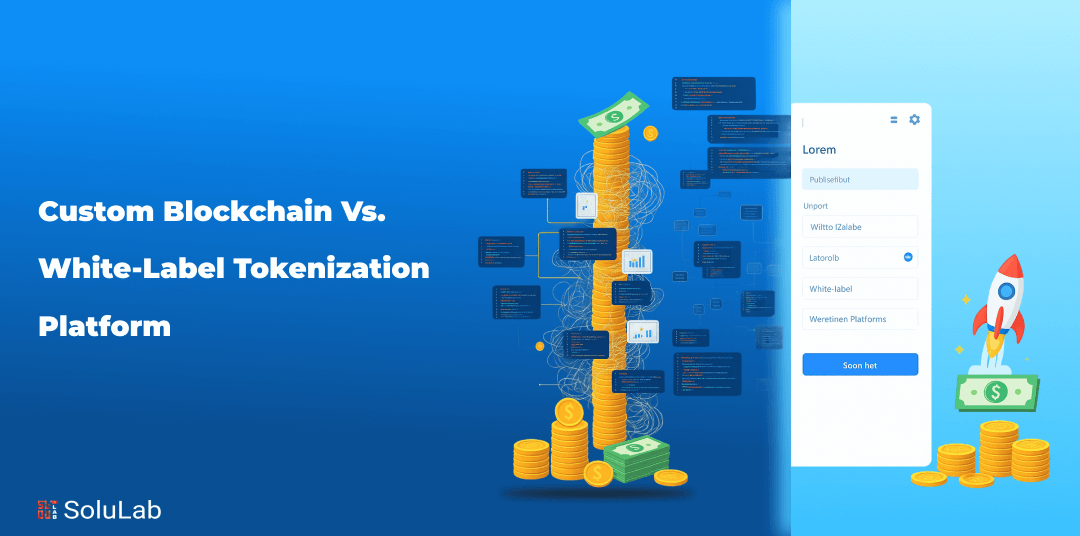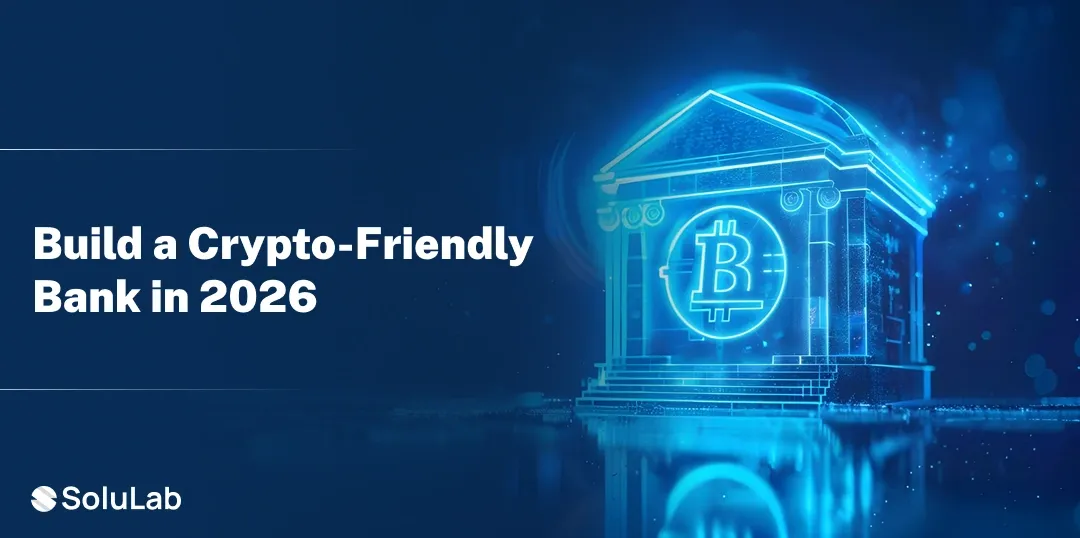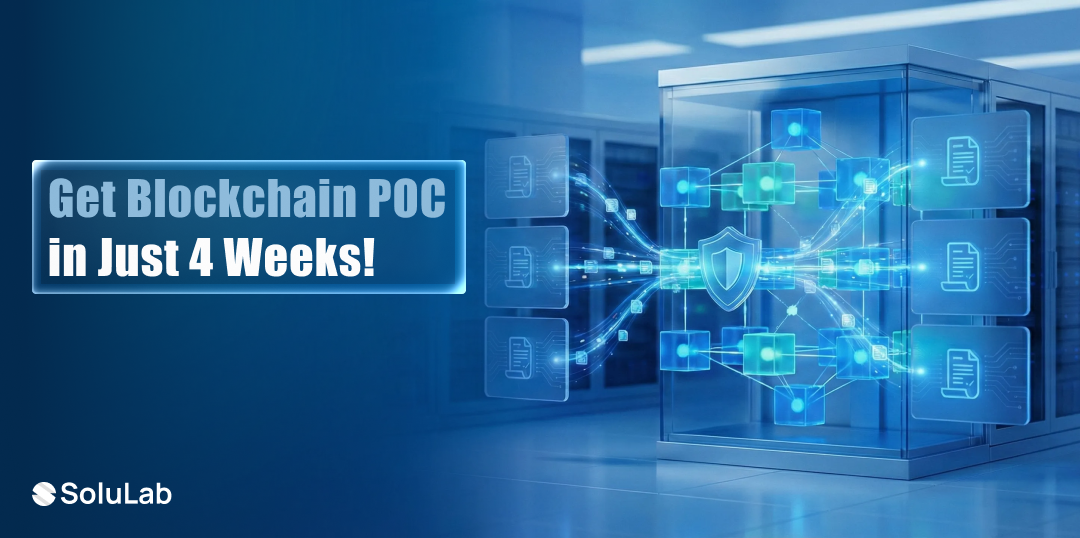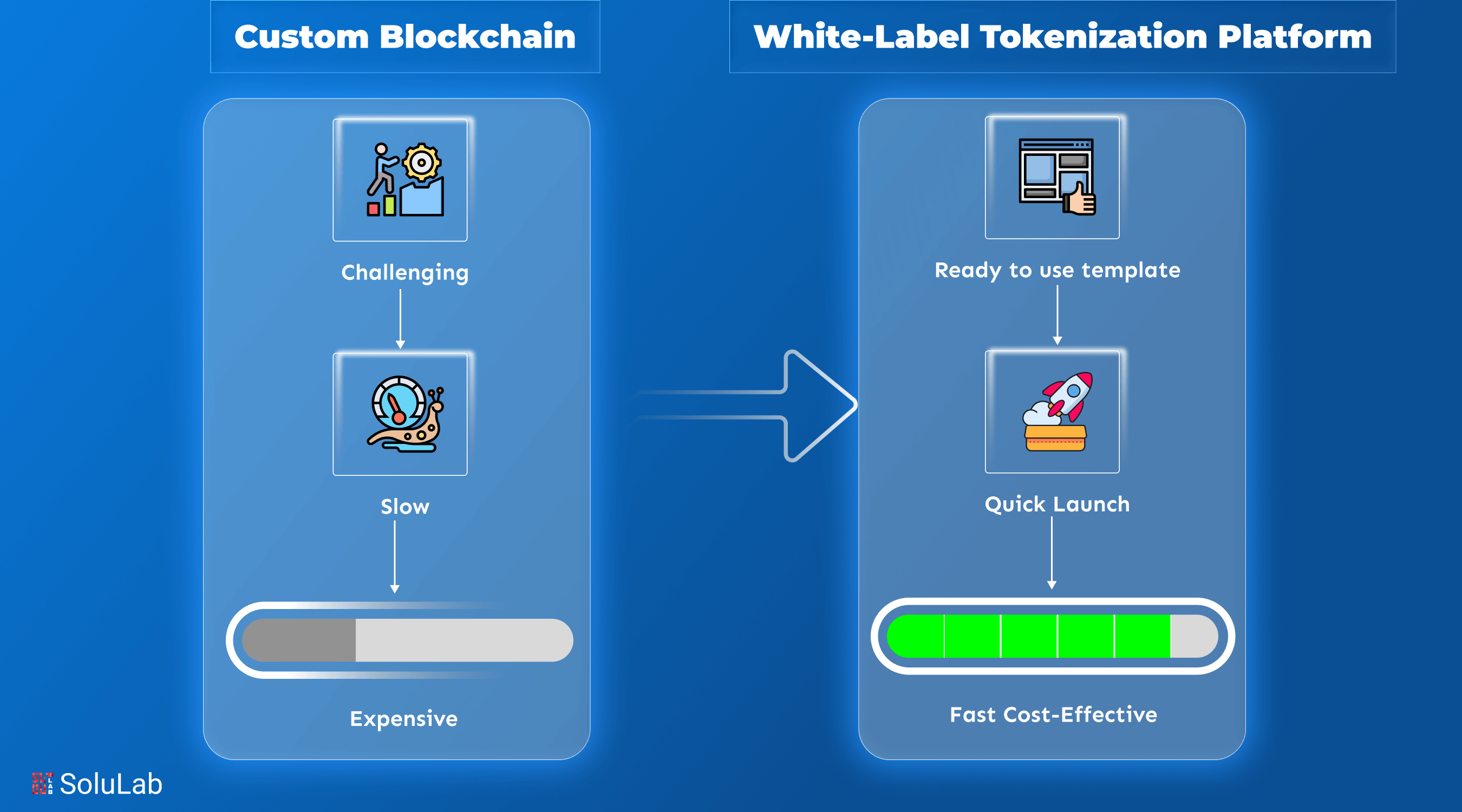
Did you know that the average custom blockchain project can take more than a year to build and cost millions of dollars? For many businesses, that’s simply too much time and money to lock away while competitors are already going live. That’s why a growing number of companies are saying goodbye to expensive, complex custom builds—and embracing white-label tokenization platforms instead.
These ready-to-deploy solutions offer the perfect balance: enterprise-grade security, built-in compliance, and rapid launch capabilities—all without the headaches of building from scratch.
In this blog, we’ll explore why businesses are making the switch, the real benefits they’re gaining, and how white-label platforms are shaping the future of tokenized assets.
What is a White-Label Tokenization Platform?
A white-label tokenization platform is a pre-built, customizable blockchain solution that enables businesses to launch tokenized services under their own brand without having to build blockchain infrastructure from scratch.
Unlike custom blockchain solutions, white-label platforms come equipped with:
- Smart contract development for automation
- RWA tokenization to digitize real-world assets like real estate, equities, and commodities
- Multi-chain compatibility for seamless interoperability
- Integrated blockchain solutions such as wallets, payment gateways, and compliance modules
In short, a white-label blockchain solution offers speed, cost efficiency, scalability, and compliance, making it the go-to option for businesses entering the blockchain ecosystem.
Custom Blockchain Solutions v/s White-Label Blockchain Solutions
Businesses are leaning toward white-label tokenization platform development. It provides the perfect balance of speed, cost-effectiveness, and scalability, without compromising on quality or compliance.
| Aspect | Custom Blockchain Solutions | White-Label Solutions |
| Development Time | 4–8 months | 2–8 weeks |
| Cost | High | Depending on customization |
| Maintenance | Requires a dedicated in-house team | Managed by the provider |
| Flexibility | Fully customized | Pre-built but customizable |
| Scalability | Depends on architecture | Designed to scale |
| Compliance | Must be integrated manually | Comes with compliance-ready modules |
Why Businesses Are Choosing White-Label Tokenization Platforms?

In today’s fast-moving digital economy, businesses don’t have the luxury of spending years and millions building custom blockchain solutions. They need secure, scalable, and compliant tokenization platforms that can launch quickly—and that’s exactly why white-label tokenization platforms are becoming the go-to choice.
1. Faster Time-to-Market
Time is money in today’s competitive era. Custom blockchain development services can take months or even years, whereas white-label blockchain solutions are ready to deploy in weeks.
This allows businesses to:
- Capitalize on emerging market opportunities
- Beat competitors to launch
- Reduce time lost in technical development
2. Cost-Efficiency
Building a blockchain platform from scratch requires a significant investment, including developers, security audits, testing, and maintenance. White-label tokenization platforms are pre-built and tested, drastically reducing costs.
Instead of spending millions, businesses only invest in customization and branding.
3. Integrated Blockchain Solutions
White-label platforms come with end-to-end blockchain integration, including:
- Secure wallets
- Smart contracts
- Token issuance modules
- RWA tokenization capabilities
- KYC/AML compliance
This eliminates the need to purchase multiple third-party solutions, saving both money and effort.
4. Scalability
A major drawback of custom blockchain solutions is that they often struggle to scale when user demand increases. White-label blockchain solutions are designed to handle high transaction volumes, making them future-ready.
5. Compliance & Security
White-label providers ensure compliance with global regulations such as GDPR, FATF, and SEC standards. They also integrate multi-layered security protocols like encryption, multi-signature wallets, and fraud detection.
This gives businesses confidence to operate securely and legally in the tokenized economy.
Must Have Features of White-Label Tokenization Platforms
Not all white-label solutions are created equal. To truly deliver value, a tokenization platform must combine security, scalability, and compliance with flexibility for business needs. Below are the essential features every white-label tokenization platform should include:
1. Smart Contract Development
Smart contracts are self-executing agreements coded into blockchain. White-label solutions come with pre-built, customizable smart contracts that automate transactions, reduce human error, and cut operational costs.
2. RWA Tokenization
One of the hottest trends in blockchain is RWA tokenization (Real-World Asset tokenization). With white-label platforms, businesses can digitize assets like:
- Real estate
- Precious metals like Gold, Silver
- Commodities
- Bonds and Securities
This makes illiquid assets tradeable and accessible, meanwhile unlocking new investment opportunities for the users.
3. Multi-Chain Compatibility
The platform allows users to operate seamlessly across multiple blockchain networks like Ethereum, Polygon, Binance Smart Chain, and more. Businesses are no longer locked into a single blockchain.
4. Customizable UI/UX
They give businesses the flexibility to personalize the look and feel of their platform. From logos and color themes to tailored user journeys, companies can create a branded experience for investors while leveraging the platform’s robust blockchain infrastructure.
5. Integrated Wallets
These allow users to store, send, and receive digital tokens seamlessly within the platform. These wallets can be custodial or non-custodial, depending on the business model, and often include multi-signature support, encryption, and compatibility with popular external wallets.
6. Analytics & Reporting
Advanced analytics dashboards provide businesses with real-time insights into token transactions, user engagement, and revenue performance. With detailed reporting tools, enterprises can monitor compliance, evaluate market trends, and make data-driven decisions to improve investor experience and optimize returns.
7. Fractional Ownership
Fractional ownership allows large, high-value assets to be divided into smaller digital units. This lowers the investment barrier for retail investors, expands the potential investor base, and increases liquidity for traditionally illiquid markets.
Read Also: 9 Key Features of Next‑Gen Tokenization Platforms for 2030
How Businesses Benefit from White-Label Tokenization Platforms?
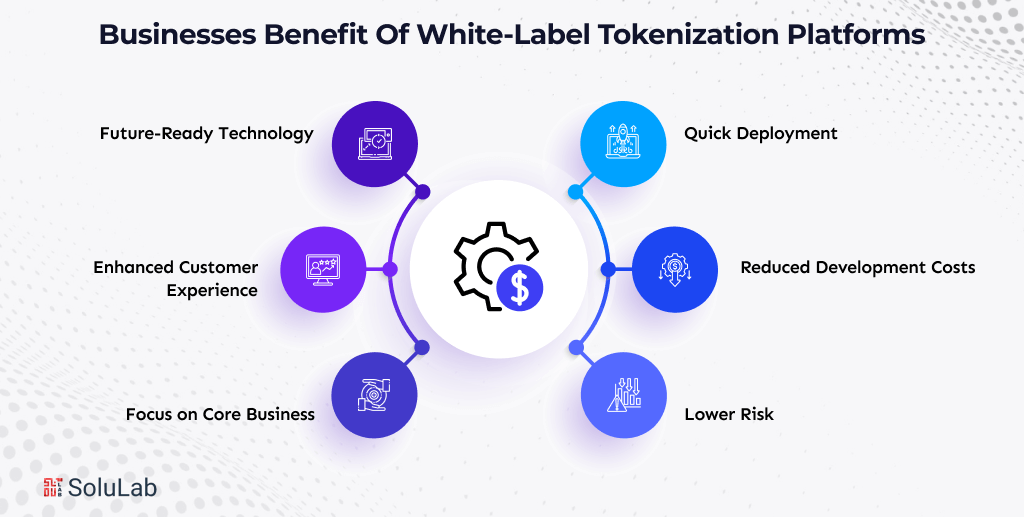
- Quick Deployment: Pre-built infrastructure allows businesses to launch their platforms within weeks, gaining a competitive advantage.
- Reduced Development Costs: Only pay for customization instead of full-scale development, saving both time and money.
- Lower Risk: Pre-tested systems minimize bugs, vulnerabilities, and security risks.
- Focus on Core Business: Leave blockchain complexities to the platform provider while concentrating on marketing, growth, and customer engagement.
- Enhanced Customer Experience: Smooth, secure, and transparent transactions improve user trust and engagement.
- Future-Ready Technology: White-label platforms are designed to scale and adapt to technological advancements and market trends.
Read Also: Tokenization Platform Development Checklist for Enterprises
Real-World Applications of White-Label Tokenization Platforms
White-label tokenization platforms are not just a trend; they are powering real innovation across industries by making assets more liquid, accessible, and globally tradable. Here are some of the most impactful use cases:
1. Real Estate Tokenization: Convert properties into fractional digital tokens, allowing multiple investors to own shares of high-value assets while enabling developers to raise capital faster.
2. Equity & Security Tokens: Businesses can tokenize shares or debt instruments, giving investors secure, transparent, and compliant access to equity markets.
3. Commodities & Precious Metals: Gold, silver, oil, and other tangible assets can be tokenized, offering investors a more efficient way to trade traditionally illiquid commodities.
4. NFTs & Digital Collectibles: From art and music to gaming assets, tokenization enables creators and brands to monetize digital ownership with transparency and authenticity.
5. Supply Chain & Trade Finance: Tokenization helps track goods, verify authenticity, and provide investors with access to trade financing opportunities.
6. Crowdfunding & Investment Platforms: Startups can raise capital by issuing tokens, giving global investors fractional stakes while maintaining compliance with securities regulations.
7. Healthcare & Intellectual Property: Patents, medical research data, and IP rights can be tokenized, creating new opportunities for funding and secure rights management.
8. Green Energy & Carbon Credits: Renewable energy projects and carbon credits can be tokenized, allowing businesses and individuals to invest in sustainability initiatives.
All in all, tokenization is breaking down barriers in sectors once limited by geography, regulation, or capital requirements. With white-label platforms, businesses can tap into these opportunities without reinventing the wheel, launching quickly, and scaling.
Conclusion
As tokenization moves from concept to mainstream adoption, businesses are realizing that building custom blockchain solutions is often too costly, time-consuming, and complex. White-label tokenization platforms provide a faster, safer, and more scalable way to bring assets onto the blockchain.
But choosing the right technology partner is just as important as choosing the right platform. SoluLab, a leading asset tokenization development company, holds expertise in blockchain, solutions, and cross-industry integrations. We help businesses design and launch tokenization platforms that are secure, fully compliant, and tailored to specific business goals.
Whether you’re a startup aiming to fractionalize assets or an enterprise exploring secondary markets, SoluLab provides the end-to-end development, customization, and ongoing support you need to succeed. Contact us today for more information!
FAQs
1. Who can benefit from white-label tokenization platforms?
Startups, enterprises, investment firms, real estate developers, digital marketplaces, and anyone looking to tokenize assets efficiently and compliantly.
2. How quickly can a white-label platform be launched?
Deployment times vary, but most platforms can launch in weeks rather than months, compared to custom blockchain development, which can take 12–18 months.
3. Are white-label platforms secure and compliant?
Yes. Leading platforms include audited smart contracts, integrated KYC/AML checks, GDPR compliance, and enterprise-grade security features such as multi-signature wallets and encrypted storage.
4. What are the cost advantages of white-label platforms?
They significantly reduce development costs, maintenance overheads, and infrastructure expenses, compared to building a custom blockchain from scratch.
5. What role does SoluLab play in white-label tokenization?
SoluLab provides end-to-end development, customization, compliance integration, and ongoing support, enabling businesses to launch secure, scalable, and market-ready tokenization platforms.


